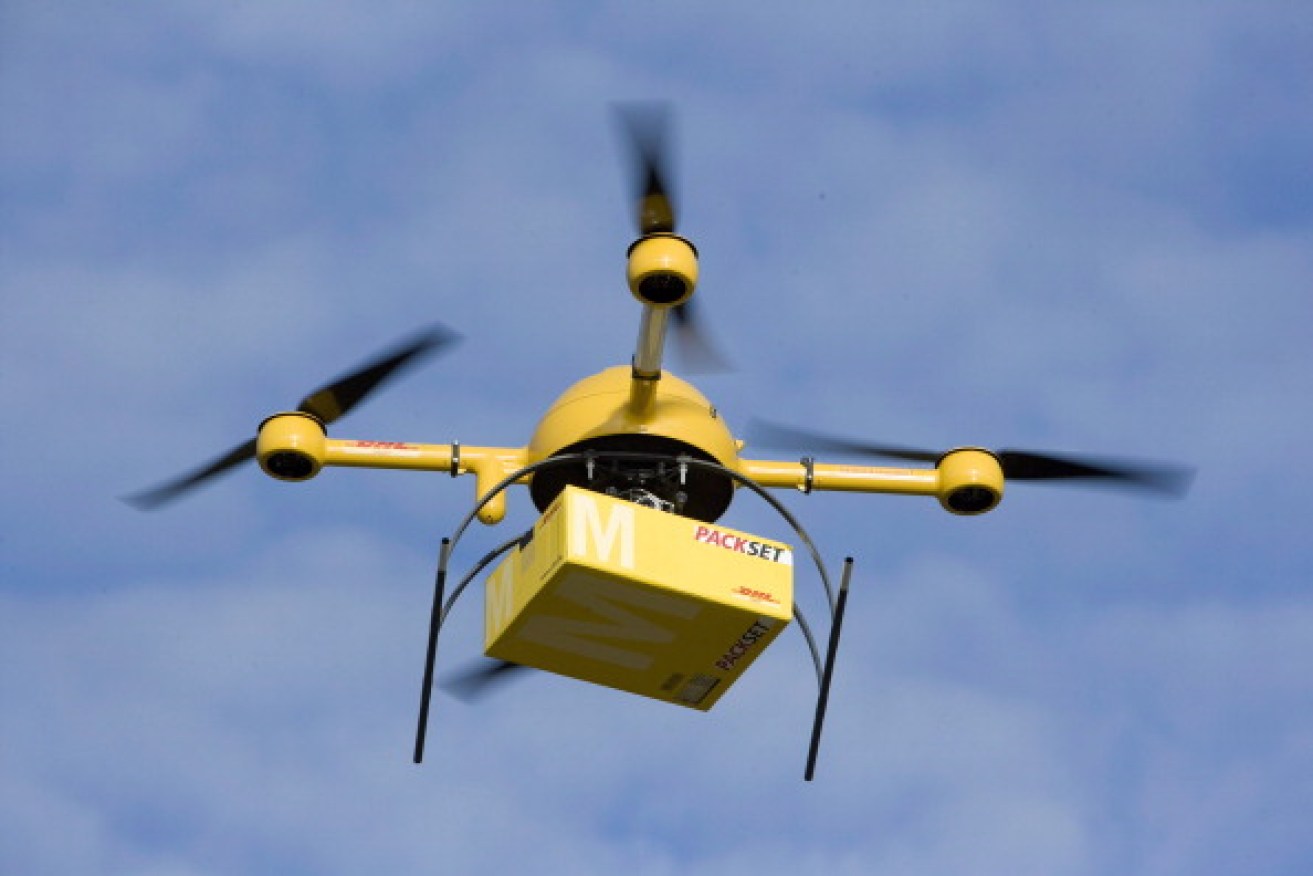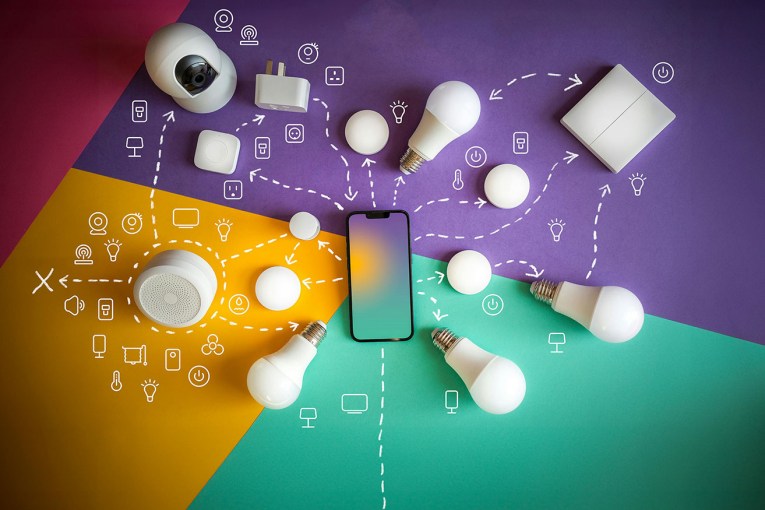One billion drones in world by 2030, futurist says

A delivery drone in flight. Photo: Getty
Drones will become the most disruptive technology in human history, American futurist Thomas Frey says, predicting that by the year 2030, there will be one billion drones in the world doing things people cannot yet imagine.
Drones already deliver goods, fight climate change, monitor reefs, supply humanitarian aid, and take part in take part in races.
But the Colorado-based futurist argued at the inaugural World of Drones Congress in Brisbane on Thursday there remained limitless possibilities for cities of the future, if only people added a few new dimensions to their thinking.
“In the future drones are going to have multiple capabilities, so let’s not think of them as little flying cameras,” he told the audience.
“They can also roll on the ground, they can stick to the side of a building, float in the river, dive under water … they can climb a tree and attach themselves like a parasite to the side of a plane.
“A driverless car is a drone.”
Dangers of a drone-driven society
Mr Frey said he believed one day every city would have its own fleet of drones, ready to make tasks more efficient across areas like health, education, business, travel, and leisure.
He wrote a list of 192 uses just for flying drones, but acknowledged this future would not come with challenges.
“If we assume that someday over 50,000 drones will fly over Brisbane, what’s the responsibility of that city?” he said.
“The same drone that can deliver a package can also deliver bombs or spy on your kids … and now we’re starting to see weaponised drones – who has the right or the obligation to shoot a drone out of the air?”
Australian privacy law playing catch-up
Queensland University of Technology law professor Des Butler warned legislation governing privacy in Queensland, Tasmania and the ACT was still stuck in the 1970s.
“Our privacy laws are piecemeal collections of common laws and statute laws, none of which provides a perfect coverage for people’s privacy,” Mr Butler said.

American futurist Thomas Frey predicts there will be a billion drones in the world as early as 2030. Photo: ABC
He said instead of being dedicated to issues arising from drone use, current privacy law was a mixture of trespass, data protection and surveillance.
“Some state surveillance laws apply to optical surveillance devices, such as a camera on a drone … but in Queensland our laws only go so far as listening devices,” Mr Butler said.
The weaknesses in law were especially clear in an April incident where a skinny-dipping woman in Darwin was shocked to find a drone hovering over her suburban backyard.
“Even that lady with the best [privacy] regime in Australia didn’t have a lot of recourse because if she’s going to take any action about the drone then she needs to know who the operator is,” Mr Butler said.
“Or at least the police need to have some way of tracking them down.”
Leveraging benefits and avoiding dangers
To try and address the opportunities and regulatory challenges the growing drone industry presents, the Queensland government has begun developing the Australia’s first drones strategy.
Premier Annastacia Palaszczuk called for ideas from industry stakeholders to help direct policy in the area at the congress earlier this morning.
“Your insights and input will also help to strengthen our strategy and ensure we maximise this industry’s full and evolving potential,” she said.
-ABC








